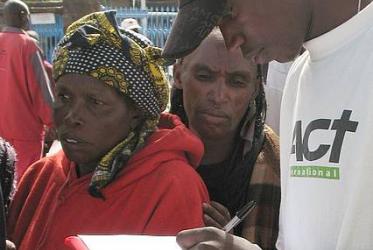Mostrando 11001 - 11020 de 12767
13 Febrero 2008
Moderator urges perseverance toward unity
13 Febrero 2008
Week of Prayer for Christian Unity
13 Febrero 2008
WCC welcomes two new member churches
13 Febrero 2008
Altmann esperanzado por nuevas iniciativas
13 Febrero 2008
Finanzas del CMI mejoran
13 Febrero 2008
Moderador del CMI pide perseverancia en la búsqueda de la unidad
13 Febrero 2008
In Burundi fear of guns drives insecurity
04 Febrero 2008
Eminent Ecumenical Persons on solidarity visit to Burundi
04 Febrero 2008
Kenyan churches to receive WCC solidarity visit
29 Enero 2008












